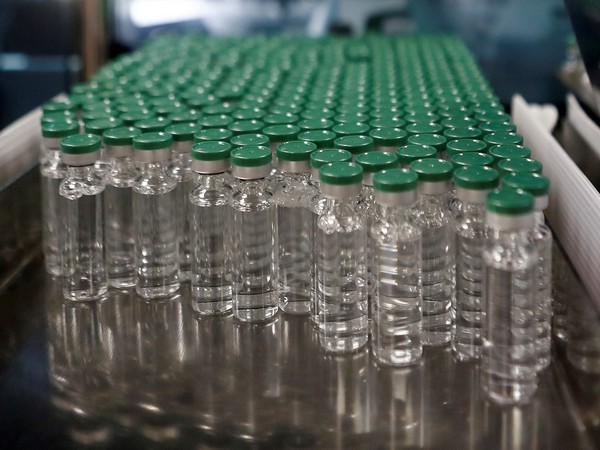Company producing J&J vaccine had history of violations
The FDAs lead investigator cited the company for failing to train employees in the particular operations they perform as part of their function and current good manufacturing practices. On the same day, Johnson Johnson, in a separate news release, heralded its partnership with Emergent as a step toward the pharmaceutical giants goal of supplying more than 1 billion doses of the vaccine globally by the end of 2021.But the FDAs inspection of Emergents Bayview plant had faulted the company for a series of quality control shortcomings, according to the records.

- Country:
- United States
The company at the centre of quality problems that led Johnson & Johnson to discard 15 million doses of its coronavirus vaccine has a string of citations from US health officials for quality control problems. Emergent BioSolutions, a little-known company vital to the vaccine supply chain, was a key to Johnson & Johnson's plan to deliver 100 million doses of its vaccine to the United States by the end of May. But the Food and Drug Administration repeatedly has cited Emergent for problems such as poorly trained employees, cracked vials and problems managing mold and other contamination around one of its facilities, according to records obtained by The Associated Press through the Freedom of Information Act. The records cover inspections at Emergent facilities since 2017. Johnson & Johnson said Wednesday that a batch of vaccine made by Emergent at its Baltimore factory, known as Bayview, cannot be used because it did not meet quality standards. It was unclear how many doses were involved or how the problem would affect future deliveries of J&J's vaccine. The company said in a statement it was still planning to deliver 100 million doses by the end of June and was “aiming to deliver those doses by the end of May.” “Human errors do happen,'' Dr Anthony Fauci, the nation's top infectious disease expert, said Thursday in an interview on CBS' “This Morning.” ''You have checks and balances. ... That's the reason why the good news is that it did get picked up. As I mentioned, that's the reason nothing from that plant has gone into anyone that we've administered to.” J&J locked arms with Emergent in April 2020, enlisting the lesser-known company to manufacture the vaccine J&J was developing with federal money. At the time, Emergent's Bayview facility wasn't scaled for making millions of doses of a potential COVID-19 vaccine, according to the FDA records, which describe the plant as a contract testing laboratory that “did not manufacture products for distribution.” Upgrades in technology and personnel were required before Bayview could begin making what is known as “drug substance” material for the vaccine, a two-month process during which the required biological cells are grown.
The FDA inspected Emergent's Bayview plant in April 2020, just as the agreement with J&J was being announced. The federal agency criticized Emergent for problems with its testing of a potential treatment for anthrax, according to the records obtained by the AP. The FDA's lead investigator cited the company for failing to train employees “in the particular operations they perform as part of their function and current good manufacturing practices.” On the same day, Johnson & Johnson, in a separate news release, heralded its partnership with Emergent as a step toward the pharmaceutical giant's goal of supplying more than 1 billion doses of the vaccine globally by the end of 2021.
But the FDA's inspection of Emergent's Bayview plant had faulted the company for a series of quality control shortcomings, according to the records. Although the inspection was not triggered by work on a COVID-19 vaccine, the issues listed by agency inspectors stand out due to the large role Emergent would soon have to combat the pandemic.
The FDA criticized the Bayview plant for failing to ensure that electronic data generated through testing of drug ingredients “was protected from deletion or manipulation.” A closer review found 202 deletions and 543 reprocessed files, yet the company had not investigated how those alterations had occurred or their possible impact, according to the records. The FDA's lead investigator, Marcellinus Dordunoo, wrote that Emergent had not investigated what he described as “data integrity concerns.” Emergent also did not follow proper testing and lab procedures at Bayview, the FDA said, noting that “deviations from test methods are not investigated, and are manually corrected days after performance, with no supporting data or documented justification.” The FDA also criticized Emergent for carelessness in the handling of rejected materials in the Bayview plant. An inspector observed items in a “reject cage” that did not have reject labels, and wrote that “separate or defined areas to prevent contamination or mix-ups are deficient.” The inspection was the most recent in a series of critical reports from the FDA about Emergent, including one following a December 2017 inspection at a plant in Canton, Massachusetts, in which the FDA said the company had not corrected “continued low level mold and yeast isolates” found in the facility. In June 2018, agency investigators questioned why Emergent had “an unwritten policy of not conducting routine compliance audits” at a separate plant in Baltimore, known as Camden, where an anthrax vaccine, BioThrax, is filled into vials.
FDA inspectors noted that the company's processes there were flawed. “Your firm received 3 complaints for residue on the outside of the vials for 3 different lots,” the FDA's inspection report said. Tests on that residue confirmed it was vaccine, according to the report.
(This story has not been edited by Devdiscourse staff and is auto-generated from a syndicated feed.)
ALSO READ
Investigation centers on electrical system of ship in Baltimore bridge collapse
FBI opens criminal investigation into Baltimore bridge collapse; boards crippled ship mostly manned by Indians
EXPLAINER-Key facts about the collapse of Baltimore's Francis Scott Key Bridge
FBI opens criminal probe into deadly Baltimore bridge collapse
Third temporary channel opens for vessels to Baltimore port after bridge collapse










